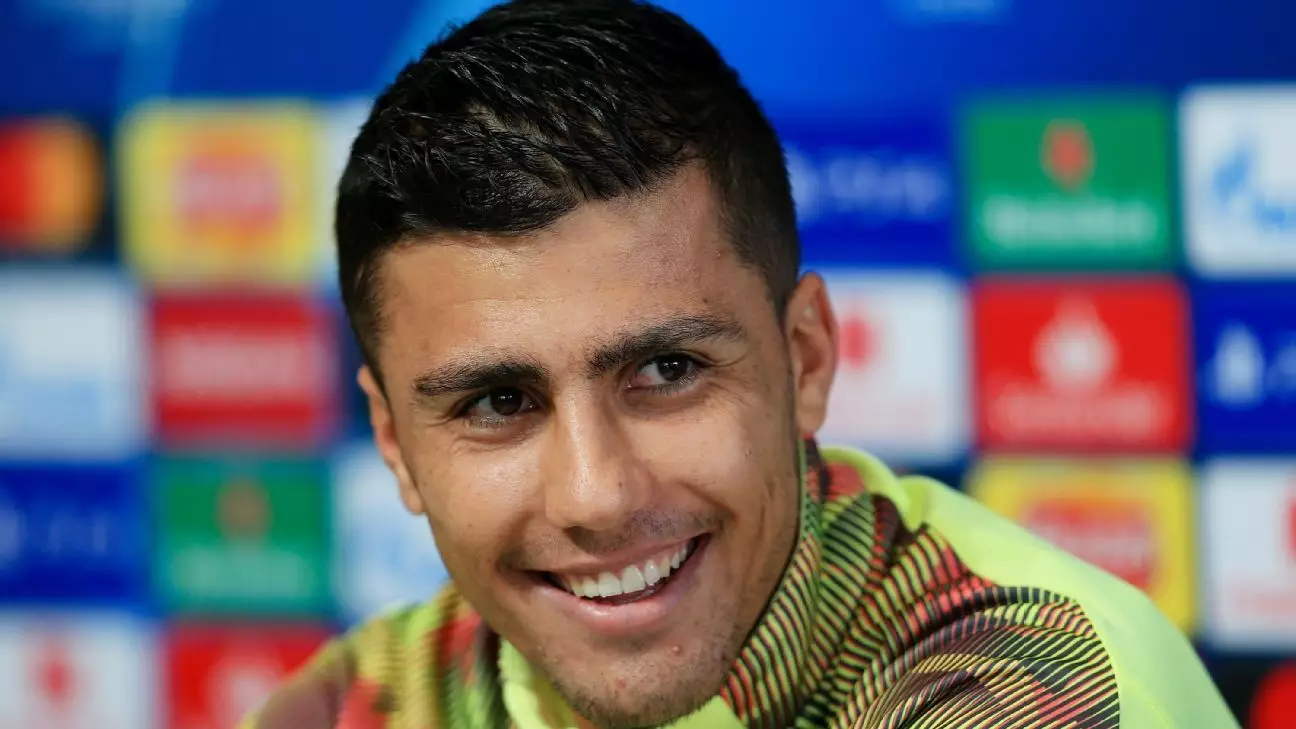In the contemporary landscape of professional football, players are faced with an unprecedented challenge: fixture congestion. The Professional Footballers Association (PFA) has made it clear that it is taking legal action against FIFA due to the overwhelming increase in match schedules. The situation has reached a boiling point, with prominent figures in the sport, such as Manchester City’s Rodri, voicing the perilous possibility of players going on strike. With their workloads ballooning due to newly implemented tournament formats like the expanded Champions League and the revamped Club World Cup, the players’ outcry for reform is gaining momentum.
Rodri, who clocked an astounding 63 appearances for club and country last season, is just one among many players who are feeling the strain. As football continues to evolve, so too does the calendar; the increased number of matches threatens to stretch players to their physical and mental limits. The PFA president, Maheta Molango, highlighted this urgency by stating that the conversation about match congestion is no longer a distant problem, but an immediate one. The players are actively advocating for change, asserting their right to be heard amid growing workloads that could see top athletes competing in as many as 85 matches within a single season.
Legal Action as a Means to an End
The PFA’s legal maneuvers are not merely symbolic; they signify a united front among players who are becoming increasingly vocal about their plight. In a statement to ESPN, Molango emphasized that this situation transcends individual player complaints and has dire implications for the entire sport. With injuries on the rise as a direct outcome of excessive playing time, there is an urgent call for those at the top to take note of the troubling trend. The onset of injuries can detract from the quality of the game itself, not to mention the long-term implications for player health.
Voices from the Sidelines
The sentiment amongst players is echoed by coaches and union leaders alike. Real Madrid’s Carlo Ancelotti has publicly criticized the current scheduling, indicating that if football’s governing bodies fail to acknowledge the direct correlation between excessive play and injuries, the sport is on a precarious path to decline. The exhaustion observed during major tournaments, such as the Euros, reinforces the argument that a packed calendar does not yield the best quality of football; instead, it diminishes the players’ performance and enjoyment of the game.
David Aganzo, the president of Spain’s Players’ Union (AFE), stands firmly beside Rodri, affirming that striking might become a necessity if dialogue with FIFA and UEFA fails. This call for action highlights an important power dynamic, where athletes are leveraging collective bargaining to negotiate better working conditions. Aganzo’s support underscores an emerging trend; players are no longer willing to accept the status quo without challenge. The surprise at UEFA’s drastic calendar changes without player consultation is a clear indication that communication channels must be improved to foster cooperation.
The Impact on Elite Players
Among the stars affected is Manchester City’s Erling Haaland, who candidly affirmed the toll that an overloaded schedule takes on players. He noted the obvious fatigue exhibited during matches and emphasized that competing in over 70 games annually can blunt a player’s sharpness. This exhaustion is not just detrimental to individual performance—it also affects the overall spectacle that football offers its fans. The question arises: is the increased number of games jeopardizing the quality of competition?
Industry-wide Implications
LaLiga president Javier Tebas voiced concern over how the revised Club World Cup schedule has further congested the football calendar. He advocates for immediate action, urging stakeholders to reconsider the repercussions that a bloated fixture list poses not only on player safety but also on the sporting business model as a whole. The potential cascading effects from reducing domestic leagues highlights the far-reaching consequences of impractical scheduling.
As the pressure mounts on FIFA and its affiliates, the deliberation over fixture congestion remains critical. The landscape of football is changing, and with it, the expectations placed on its elite players. Striking, as proposed by individuals like Rodri and supported by organizations like the PFA and AFE, signifies a litmus test of player solidarity and their resolve to enact meaningful change. Whether football’s governing bodies heed the call for reform remains to be seen, but the current trajectory suggests that the status quo is no longer an option. The time for dialogue and actionable change is now, lest the sport faces dire consequences moving forward.

